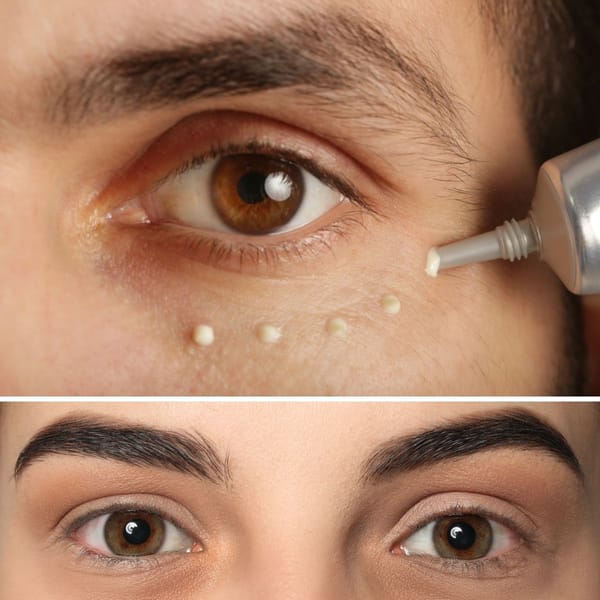Collagen, the most abundant protein in the human body, plays a pivotal role in maintaining the structure and health of our skin, bones, and connective tissues. As we age, collagen production decreases, leading many to turn to collagen supplements as a way to reclaim the vitality of their youth. But how quickly can one actually see the effects of drinking collagen? This article dives deep into what you can expect when you start your collagen journey.
Key Takeaways:
- Time Frame for Visible Results: Generally, it may take about 4 to 6 weeks to notice improvements in skin health and elasticity from daily collagen intake.
- Benefits Beyond Skin: Collagen supplementation can also support joint health, bone density, and overall well-being.
- Consistency is Key: Regular, consistent intake of collagen is crucial for seeing sustained benefits.
Understanding Collagen and Its Importance
Collagen is more than just a beauty buzzword. It’s a key component in our skin, hair, nails, and the connective tissue throughout our bodies. As the scaffolding of our skin, collagen helps maintain skin elasticity and firmness. Its decline leads to the visible signs of aging such as wrinkles and sagging skin.
The Role of Collagen in the Body
Collagen’s duties extend beyond keeping our skin looking youthful. It also strengthens bones, supports joint health, and ensures the integrity of our blood vessels. With such a wide range of functions, maintaining adequate collagen levels is essential for overall health.
How Collagen Supplements Work
Taking collagen supplements, whether in the form of powder, pills, or bone broth, introduces hydrolyzed collagen peptides into the body. These are easier for the body to absorb and can stimulate collagen synthesis in the skin and other parts of the body.
The Absorption and Effectiveness of Collagen
Once ingested, collagen peptides are absorbed into the bloodstream, promoting collagen production across various body systems. This process is crucial for compensating for the body’s decreased natural collagen production as we age.
Factors Influencing Collagen Supplement Results
The timeline for seeing results from collagen supplements can vary based on several factors including age, lifestyle, and the type of collagen used. Understanding these can help set realistic expectations.
Personal Health and Lifestyle
Factors such as smoking, diet, and sun exposure can affect how quickly you’ll see the benefits of collagen. A balanced diet and healthy lifestyle can enhance the effectiveness of collagen supplementation.
Types of Collagen and Their Specific Benefits
Not all collagen is created equal. Type I collagen predominantly benefits the skin, while Type II is more beneficial for joint health. Choosing the right type based on your health goals is crucial.
How Much Collagen Should You Take?
Experts generally recommend between 10 to 20 grams of collagen daily to see health benefits. However, this can vary based on individual needs and the specific issues being targeted.
Collagen and Gut Health
Collagen's role extends beyond skin and joints; it also plays a pivotal part in maintaining gut health. The amino acids in collagen, such as glycine and proline, help to repair damaged cell walls in the intestines, which is crucial for preventing leaky gut syndrome—a condition where toxins and food particles pass into the bloodstream. This protective role of collagen not only supports overall digestive health but also bolsters the immune system. Regular intake of collagen supplements can lead to a healthier gut lining, potentially reducing inflammation and discomfort associated with gastrointestinal issues.
Moreover, the relationship between collagen and gut health is reciprocal. A healthy gut contributes to more effective collagen synthesis and management in the body. By supporting gut health through collagen supplementation, individuals may experience improved nutrient absorption, which in turn enhances the body's ability to produce and utilize collagen effectively. This synergy highlights the importance of considering collagen supplements as part of a balanced diet aimed at maintaining not just skin elasticity and joint mobility but also optimal digestive health.
Collagen's Impact on Hair and Nail Health
Incorporating collagen into your daily regimen could be a game-changer for those struggling with brittle nails and lackluster hair. Collagen provides amino acids that are essential for the synthesis of keratin, the protein that is a key component of hair and nails. Regular consumption of collagen can lead to a significant reduction in brittleness, improved hair thickness, and faster nail growth. This is particularly beneficial as the body's natural collagen production decreases with age, often leading to thinner hair and more fragile nails.
Furthermore, the benefits of collagen for hair and nail health are not just about aesthetics; they also indicate the body's internal health. Strong nails and vibrant hair are often reflections of good nutrition and effective protein intake. By boosting collagen levels, you're not only enhancing your appearance but also fortifying your body's protein reserves, which is crucial for overall vitality. This makes collagen supplements a valuable addition for anyone looking to maintain youthful hair and nails while supporting their body's overall protein needs.
Visible Changes in Skin Health
Many users report seeing improvements in skin texture and elasticity within 4 to 6 weeks of consistent collagen intake. These changes are often the first visible signs that the collagen is working.
Collagen for Joint Health and Mobility
Beyond skin health, significant reductions in joint pain and stiffness can be observed, typically after about 3 to 6 months of regular collagen supplementation.
Long-Term Health Benefits
Consistent long-term use of collagen supplements may contribute to better bone density and overall joint and bone health, which is especially beneficial as the body ages.
Collagen and Muscle Mass
For those involved in regular physical activity, collagen can also support muscle mass and strength, thanks to its amino acids, which are building blocks for muscle.
Collagen-Rich Foods vs. Supplements
While supplements are a direct way to increase collagen intake, incorporating collagen-rich foods like chicken, fish, and egg whites into your diet is also beneficial.
Enhancing Collagen Absorption
To maximize collagen absorption, pairing it with vitamin C-rich foods or supplements can be effective, as vitamin C is a key co-factor in collagen synthesis.
Potential Side Effects and Considerations
While collagen supplements are generally safe, they can cause digestive side effects in some people. It’s important to choose high-quality products to minimize risks.
Allergic Reactions and Collagen
Those with allergies to certain sources of collagen, such as fish or eggs, should opt for alternative types of collagen supplements to avoid allergic reactions.
Summary
Drinking collagen can offer a multitude of health benefits, particularly in skin and joint health. While results can vary, most people can expect to start seeing skin improvements within 4 to 6 weeks and joint health benefits within a few months, provided the collagen intake is consistent and paired with a healthy lifestyle.
FAQ
Q1: Can drinking collagen improve hair and nail health? Yes, regular intake of collagen can strengthen nails and improve hair growth and quality, as collagen provides essential amino acids needed for keratin production.
Q2: Are there vegan collagen supplements available? Yes, while traditional collagen supplements are derived from animal products, vegan options typically contain various plant extracts and vitamins that support the body’s natural collagen production.
Q3: How can I tell if my collagen supplement is effective? Notable signs include improved skin elasticity and hydration, reduced joint pain, and possibly healthier hair and nails. Keeping track of these changes can help determine the effectiveness of your collagen regimen.







